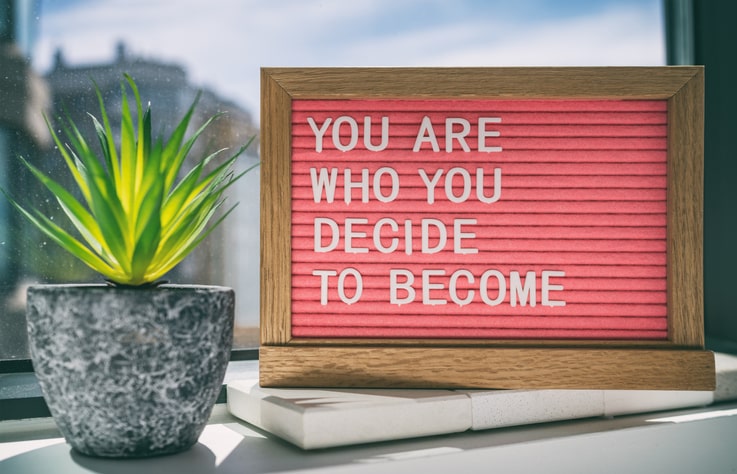If you are feeling unmotivated, overwhelmed, exhausted, or stressed, it may be time to reclaim your authority over how you allocate your energy.
Your personal brand suffers when you take on more and more activities that directly compete with those you’ve already committed to or things you’d rather be doing.
Losing sight of what’s relevant to you.
Too often, we ignore, run away, or gloss over a negative state of mind and disregard our body’s warning signs when it needs a break or some rest. There are many reasons for this, ranging from our upbringing, cultural norms, inborn tendencies, preferences, and survival strategies to our life-long experiences, and the expectations we put on ourselves.
Regardless of the root cause—the issue is—how you’re feeling continues to remain. Even when the sensation passes momentarily or lingers for a significant duration, it’s still there in the background. These “hidden” sentiments may fester and turn into some form of regret, resentment, or even be projected back onto you by others—until you acknowledge, accept, and process your emotions.
Taking a close look at yourself takes guts.
The more self-aware and grounded you become in who you are instills confidence, enabling you to be firm and set realistic boundaries while remaining flexible in your interactions with others.
When you allow yourself space to go deep within, you can tap into your internal wisdom and see more clearly what lights you up and what depletes you. With this insight, you can strategize and reprioritize where you want to invest your efforts and adjust your personal narrative and brand strategy to support your vision, mission, and goals.
Having a clear perspective empowers you.
Gaining clarity takes patience and discipline, especially if you’ve been “trained” to react in a certain way or have adopted a “must respond immediately” mentality or are easily distracted by what’s going on around you.
Here are five ways that have helped me find balance and alignment with my personal brand:
Pausing and reflecting.
Some of us are feelers, others thinkers, and others doers. The key is nurturing these centers equally with constructive habits and routines. For example, if you’re a feeler or thinker, you may want to go for a walk or run to release pressure or anxiety or “rage on the page” to get any ruminating, frustrating thoughts on paper and then shred or delete them. For those who tend to act immediately, sitting still or talking through different scenarios with a trusted partner, and considering the potential impacts before choosing a course of action would be beneficial.
Setting daily intentions.
This can range from how you want to “show up” to what you want to do and accomplish. It could be behaviorally oriented, such as, “Appreciate and recognize team members when presenting,” or “Listen openly to all those I encounter,” to more action-oriented, like, “Complete X project before doing or committing to something else.”
Recognizing and accepting all parts of yourself.
We all have covers we wear in how we express ourselves to others. As someone who has said, “Yes, of course” or “It’s no problem at all” too many times in the throes of excitement to please someone else, I know what “I should of” and “If only I” feels like. Learning to be okay with the fact that everyone may not like me or like what I say or do, was something I needed to come to grips with and respect.
Asking yourself core questions.
For decades, I lived with a narrative: “If I do everything everyone else expects of me, even before they ask, I can finally be left alone.” Through my Human Design studies, I learned I must ride through my emotional waves—the positive and negative, highs and lows—before saying “Yes,” to important decisions. Questions that have helped me assess include:
- How do I feel?
- How do I want to feel?
- What do I want?
- What do I need?
- What’s holding me back?
- What would help me move forward?
Reimagining the word “No.”
Your internal system, desires, values, and goals need to be aligned with your outward persona and actions to live in congruence. Learning to say “no” or “no for now” can be daunting, but it’s a skill worth developing for your well-being. It doesn’t benefit you or anyone else if you’re wavering back and forth or emitting conflicting vibes by regretting your immediate reaction. Here are some ways to take back control of your schedule.
Successful balance is within your reach.
Getting to know yourself better, sharpening your emotional intelligence skills, and unlocking your potential for transformation are just some of the ways you can invest in your personal growth. My approach is personalized and customized, using various assessments as the foundation for advancement. If you’re looking for a coach to guide you on harnessing your YOU-ness and activating your best, please schedule a call to learn how I can support you on your journey.

